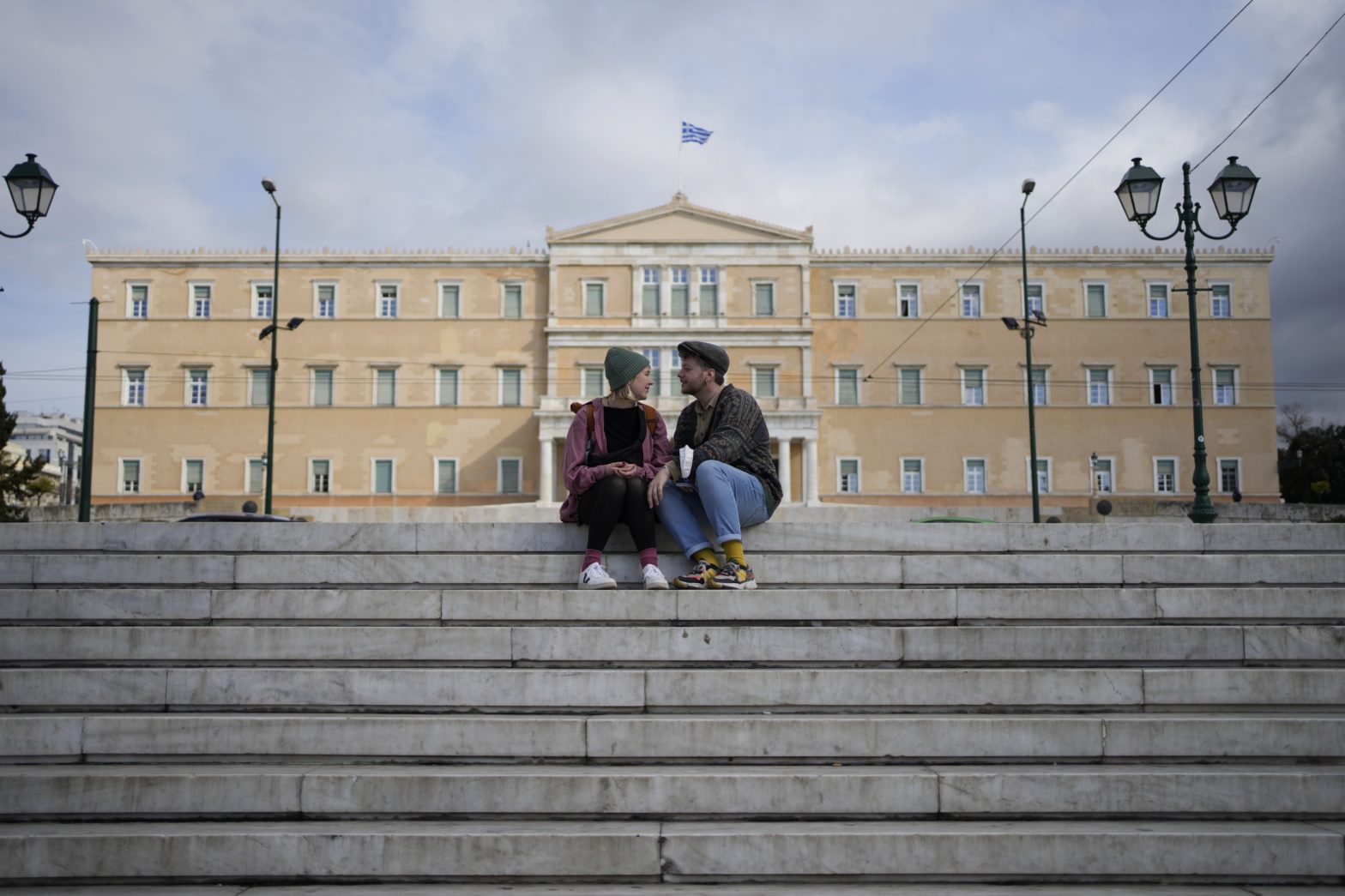General News
Meropi Kyriacou Honored as TNH Educator of the Year
NEW YORK – Meropi Kyriacou, the new Principal of The Cathedral School in Manhattan, was honored as The National Herald’s Educator of the Year.

ATHENS – Prime Minister Kyriakos Mitsotakis said his New Democracy government – trying to speed a recovery from the COVID-19 pandemic while dealing with rising inflation – will still help households battered by jumping fuel costs and provide more aid to the elderly, pensioners and others in need.
Payments of emergency assistance have begun while a fuel subsidy platform is expected to be in operation soon, costs soaring over the worldwide effect of Russia’s invasion of Ukraine.
“We are moving ahead without leaving anyone behind,” said government spokesman Giannis Oikonomou, who insisted that “every available means” will be deployed to support the economy, said Kathimerini.
“We are constantly inventing and discovering new forms and possibilities,” he said adding they would cost 324 million euros ($354 million) but without indicating what happened to 32 billion euros ($34.95 billion) in COVID loans and grants from the European Union.
Oikonomou again indicated that if the EU doesn’t respond to Mitsotakis’ call for bloc-wide aide over energy costs that Greece would continue its own program of providing assistance, including with electricity bills that have nearly doubled.
“It is the decision of the Prime Minister to exhaust all available funds. To find ways to support society, maintaining the necessary fiscal balance and keeping resources and reserves for the foreseeable future,” he said.
“There will always be support as long as the energy problem persists,” Oikonomou stressed, as he outlined who will receive what.
“The extraordinary financial aid will be paid to the low-income pensioners and the uninsured elderly, as well as to the beneficiaries of the disability allowance, Minimum Guaranteed Income and Child Allowance,” he said.
Payments will go to low-income pensioners, beneficiaries of disability benefits, uninsured elderly citizens, a double installment of the minimum wage, and one-time payments to families with child allowance.
He took a swipe at the major opposition SYRIZA that has criticized the government for not doing enough to help. “Growth at 4.8 percent of GDP is among the highest in Europe,” he said, noting that Greece avoided predicted large-scale closures of businesses and rise in the jobless rate.
NEW YORK – Meropi Kyriacou, the new Principal of The Cathedral School in Manhattan, was honored as The National Herald’s Educator of the Year.

NEW YORK – The New York Greek Independence Parade on Fifth Avenue, commemorating the 203rd anniversary of the Greek Revolution of 1821, was held in an atmosphere of emotion and pride on April 14.
NEW YORK — The historic hush money trial of Donald Trump got underway Monday with the arduous process of selecting a jury to hear the case charging the former president with falsifying business records in order to stifle stories about his sex life.
ATHENS - The New Democracy's ballot paper was presented at a special event at the Athens Auditorium on Monday.
JERUSALEM — Israel’s military chief said Monday that his country will respond to Iran’s weekend attack, but he did not elaborate on when and how as world leaders urged Israel not to retaliate, trying to avoid a spiral of violence in the Middle East.
FRANKLIN, TN – After the amazing success of first two Annual Greek Adoptee Reunions in Nashville, TN, in August 2022 and in their homeland of Greece in October 2023, Greek-born adoptees are poised to converge on Louisville, KY, for the Third Annual Greek Adoptee Reunion, June 20-22.